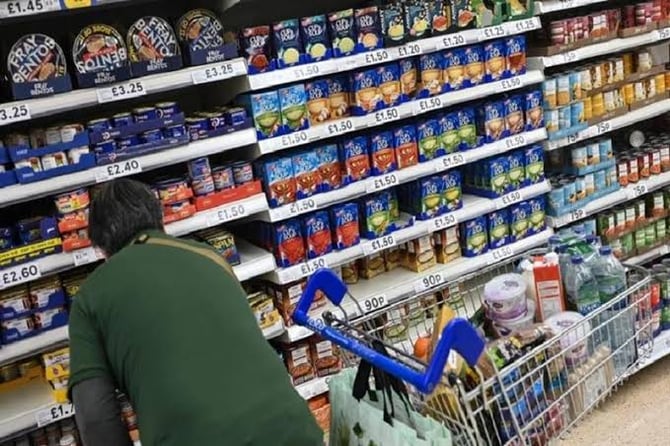UK Inflation Hits 15-Month Low Amid Falling Energy Prices

In a notable dip, the UK's annual inflation rate for July hit its lowest in 15 months, anchored by a decrease in energy costs, and aligning with economists' predictions, recent official data revealed.
The Office for National Statistics (ONS) reported Wednesday that the Consumer Prices Index (CPI) climbed by 6.8% annually, a decline from the 7.9% in June, offering some relief from the nation's escalating living costs.
This aligns with projections made by analysts and financial institutions, including the Bank of England, which had pegged the rate at 6.8%.
Interestingly, June saw an unexpected decline with the CPI dropping 0.8%. Nevertheless, for several months now, UK's inflation has topped the list among G7 countries.
July saw a reprieve in gas and electricity costs, even though food prices inched upwards. The reduction in gas and electricity prices primarily drove the downturn in inflation for the second month in a row. And while still substantial, there was a noticeable ease in the inflation of food prices, especially staple items like milk, bread, and cereals.
What does this mean for me?
Prime Minister Rishi Sunak has laid down an ambitious plan: to cut inflation by half by the year 2024, targeting a 5% rate. Recent hikes in interest rates, starting from late 2021, have cast financial shadows across the UK, notably causing upheaval in the mortgage sector as lenders upped their home loan rates.
In a related economic update from Tuesday, UK unemployment saw a surge in the quarter leading up to June's end, but the nation also witnessed wage growth at a record-setting pace.
More News
.webp)
Japan’s Rate Shift Is Rippling Through Global Bond Markets
1 week ago

China’s Growth Engine Stalls as Consumers and Investors Pull Back
2 weeks ago

Egypt’s Recovery Gains Traction as Household Pressure Lingers
3 weeks ago

OECD Warns AI and Tariffs Will Test the Global Economy
4 weeks ago

Zero Tariffs, Higher Drug Bills as US and UK Reset Pharma Trade
4 weeks ago

Catastrophe Bonds Go Global as Climate Risk Meets Yield Hunting
1 month ago
.webp)
Canada Shields Steel and Lumber Industries From Tariffs
1 month ago

Trump Drops Selected Tariffs in Response to Inflation Pressures
1 month ago